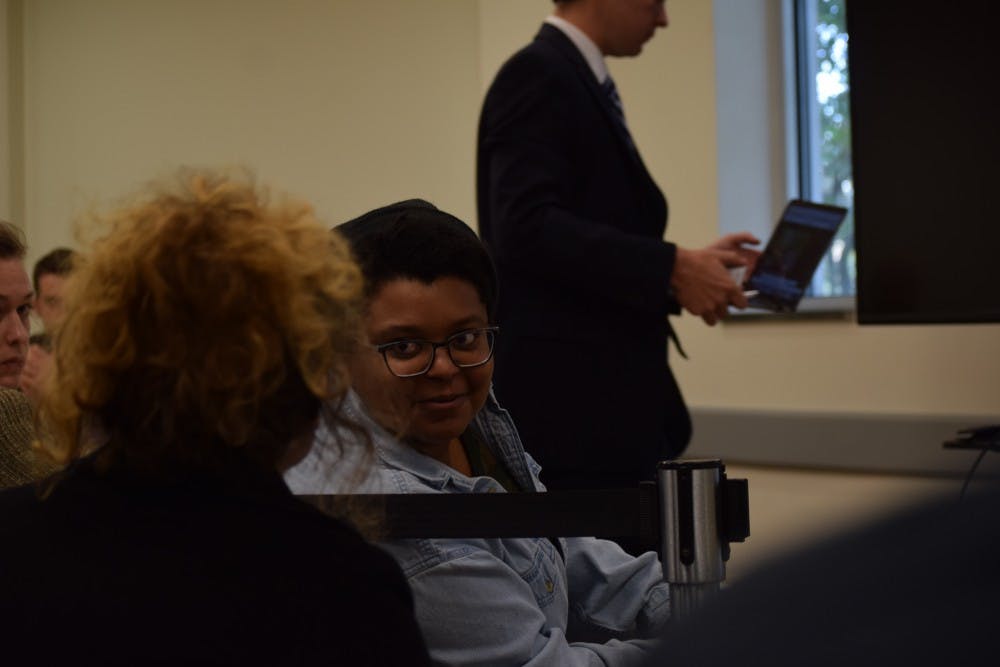Maya Little had her day in court last week for the charge of defacing Silent Sam, but she has yet to receive a verdict from the Graduate and Professional Honor Court, which met Thursday to begin the fact-finding process that will result in a verdict from the University on her actions.
The proceedings were highlighted by a discovery made by the crowd while the hearing was in a recess: UNC law student Frank Pray, one of the five adjudicators that will decide Little’s fate, has made public comments on Silent Sam in a number of contexts.
In 2015, he spoke to the Board of Trustees on behalf of the UNC College Republicans, saying that “To change the monument in any substantial way that would disrespect that memory and disrespect our ancestors is quite frankly an insult to us and their memories.”
In the same year, he called Silent Sam protestors “petulant children” in a 2015 Twitter comment. To complicate matters even further, he recipient of his insult, Altha Cravey, is on Little’s witness list.
In a rush, the attendees of Little’s open hearing — comprised mostly of her supporters — shared the social media comments among themselves and with Little. When the student adjudicators returned, Little was ready with questions.
She, rather than her defense, asked the Honor Court if she could raise concerns over her right to a fair trial. The presiding officer, Amelia Ahern, said that the time for rooting out impartiality had come and gone — there was a built in window for any potential conflicts to be identified at the beginning of the hearing, and Ahern said that since there was still a witness on the stand, it wasn't the right time for Little’s concerns.
Once the hearing convened following the next recess, however, Little’s student-appointed defense, Clare Kurdys, made a stronger push to reconsider the potential compromise of impartiality. The instrument of student judicial governance ensures the accused a “fair, impartial and speedy hearing.”
“We believe it will be impossible for Mr. Pray to be impartial,” Kurdys said.
This time, Ahern accepted the motion and the hearing went into another recess so the five adjudicators could internally decide the best route forward. Back in the hearing room, Little’s supporters became restless and agitated, not shy in their insults directed at the passing adjudicators.




